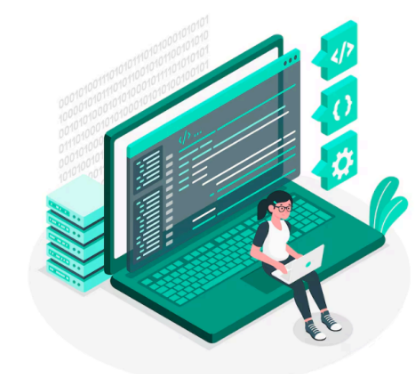Introduction:
Python has become a cornerstone of the programming world, renowned for its simplicity, readability, and versatility. Whether you’re a student looking to break into the tech industry or a beginner eager to explore the programming world, mastering Python is invaluable. This guide is designed to help you learn the necessary skills to begin working with Python and pave the way for you to become a skilled programmer.
According to Glassdoor,The national average salary for a Python data analyst is ₹83,478 in India. [ 1 ]
Why Python?
Python has been in demand for the past few years, and the latest survey further advised this: Python leads the chart of many of the pinnacle programming languages in each of the TIOBE index and PYPL Index. Join us at Infycle Technologies and let our Python Training in Chennai propel you towards a
prosperous career in technology. Before diving into the essentials, it’s important to learn why Python is a great choice for beginners:
- Simplicity And Readability: Python’s syntax is designed to be intuitive and closely resemble human language, making it easier to learn and understand.
- Versatility: Python is versatile and can be applied in various fields, such as web development, data analysis, artificial intelligence, scientific computing, and more.
- Community And Resources: Python’s extensive community and abundant resources, such as tutorials, forums, and libraries, can be incredibly helpful for learning.
Essential Skills For Mastering Python:
Understanding Basic Syntax And Structure
Understanding any programming language’s syntax and structure is the foundation of learning it. Python’s syntax is straightforward, making it an excellent starting point.
- Indentation: Unlike many other programming languages, Python uses indentation to define code blocks. Proper indentation is crucial for your code to run correctly.
- Variables And Data Types: Get comfortable with Python’s variable assignment and basic data types such as integers, floats, strings, and booleans.
- Comments: Use comments effectively to make your code more readable and maintainable.
Control Flow And Looping
Control flow statements and loops are fundamental for writing logical and efficient code. ● Conditional Statements: Master if, Elif, and else statements to control the flow of your programs based on conditions.
- Loops: Understand how to use for and while loops to iterate over sequences and perform repetitive tasks.
Functions And Modules
Functions are useful blocks of code that perform a specific task, while modules are files containing Python code that can be brought into your program.
- Defining Functions: Learn how to define functions using the def keyword and understand the importance of parameters and return values.
- Modules And Packages: Explore Python’s standard library and learn how to import and use modules and packages to extend the functionality of your programs.
Data Structures
Python provides a range of built-in data structures essential for organizing and storing data. ● Lists: Dynamic arrays that can hold elements of different data types.
- Tuples: Immutable sequences are used to store fixed collections of items.
- Dictionaries: Key-value pairs that allow for efficient data retrieval.
- Sets: Unordered collections of unique elements.
File Handling
File handling is crucial for storing program output with external data sources.
- Reading And Writing Files: Learn how to open, read, write, and close files using Python’s built-in functions.
- File Modes: Understand different file modes such as read (‘r’), write (‘w’), append (‘a’), and binary modes.
Error Handling
Error handling is essential for creating robust programs that can handle unexpected situations gracefully. ● Exceptions: Learn the proper usage of except, else, and finally, blocks to catch and manage exceptions.
- Custom Exceptions: Understand how to define and raise custom exceptions to manage specific error conditions in your programs.
Object-Oriented Programming (OOP)
OOP is a programming pattern based on the concept of objects, which can contain data & code to manipulate that data.Unlock your destiny and build a rewarding career in software development with Infycle Technologies, the Best Software Training Institute in Chennai. Our comprehensive training programs offer an in-depth learning experience, covering cutting-edge technologies and essential industry skills.
- Classes And Objects: I need to discover how to create courses and objects and understand the concepts of attributes and methods.
- Inheritance: Explore how to create subclasses that inherit attributes and methods from parent classes.
- Encapsulation And Polymorphism: Understand the principles of encapsulation (hiding the internal state of objects) and polymorphism (using a single interface to represent different underlying forms).
Libraries And Frameworks
Python’s strength rests in its extensive ecosystem of libraries and frameworks that simplify complex tasks. ● NumPy And Pandas: Essential libraries for data manipulation and analysis. ● Matplotlib And Seaborn: Popular libraries for data visualization.
- Flask and Django: Web frameworks for developing web applications.
Working With APIs
APIs (Application Programming Interfaces) allow your program to interact with external services. ● Requests Library: Learn how to use the requests library to send HTTP requests and handle responses.
- JSON Data: Understand how to parse JSON data, a common format used in APIs.
Version Control With Git
Version control is a crucial skill for managing and collaborating on code.
- Git Basics: Learn how to initialize a repository, commit changes, and push to a remote repository.
- Branching And Merging: Understand how to create branches and merge changes, facilitating collaborative development.
Practical Tips For Learning Python:
Start With Simple Projects
Apply your knowledge by working on easy projects that interest you. It could be a basic calculator, a to-do list app, or a simple game. Hands-on practice is essential for reinforcing your learning.
Join The Community
Engage with the Python community by participating in forums, joining local meetups, or contributing to open-source projects. Community support can provide valuable insights and motivation.
Use Online Resources
Take power from the wealth of online resources available. Websites like Codecademy, Coursera, and freeCodeCamp offer interactive tutorials and courses that cater to beginners.
Practice Regularly
When learning a new skill, it’s important to be consistent. Set aside regular time for coding practice, and gradually increase the complexity of the projects you work on.
Seek Feedback
Share your code with more experienced developers and seek feedback. Code reviews can help you identify areas for improvement and learn best practices.
Stay Updated
Due to the tech world’s constantly evolving nature, learning Python’s latest trends and advancements is essential. To keep your knowledge current, follow blogs, subscribe to newsletters, and attend webinars.
Conclusion:
Mastering Python is a journey that requires dedication, practice, and a willingness to learn. Students and beginners can build a strong foundation in Python programming by focusing on the essential skills outlined in this guide. Remember to start small, seek help when needed, and continuously challenge yourself with new projects. With time and effort, you’ll become proficient in Python and ready to tackle more complex programming tasks.


